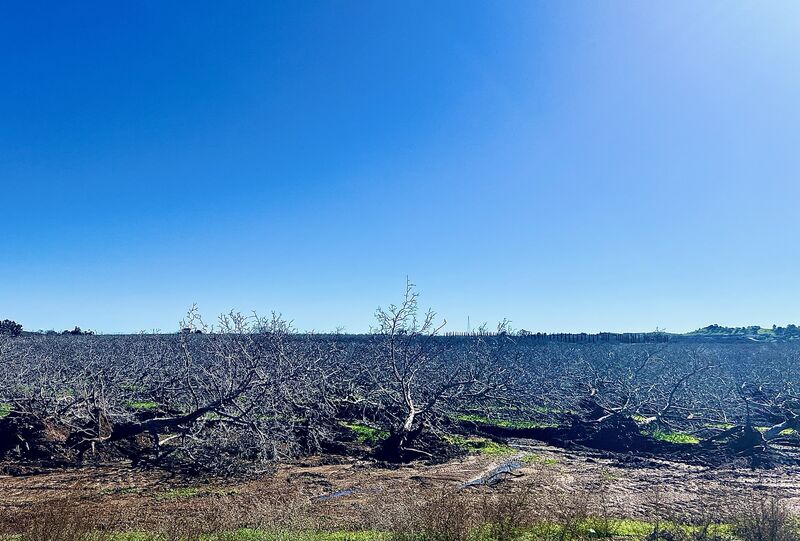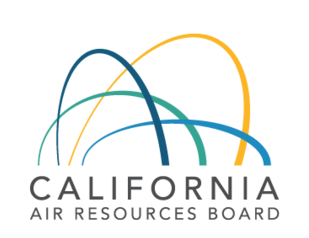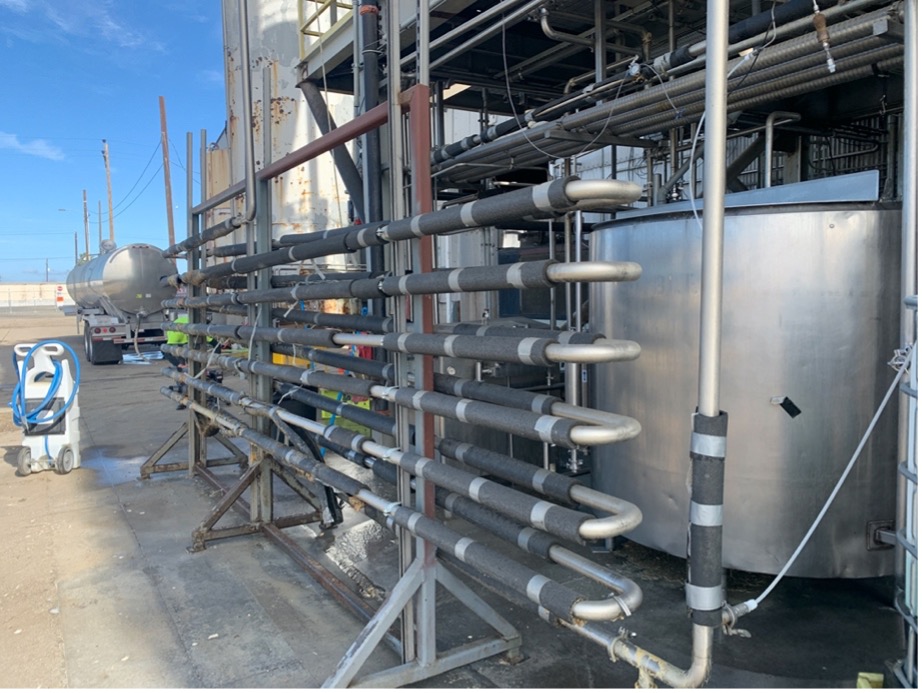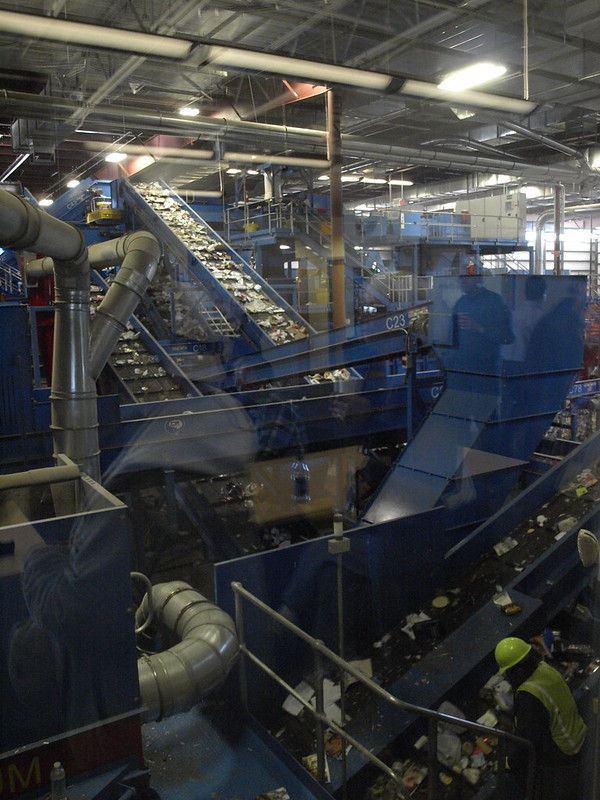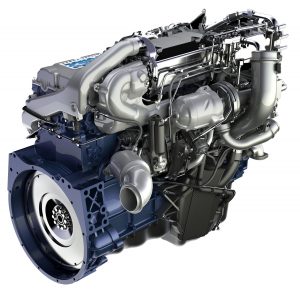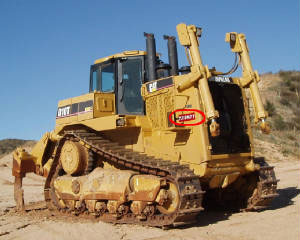
If you haven’t reported your applicable equipment yet, you might want to put a rush on it order to avoid penalties. Fleet owners can report their mobile off-road diesel equipment using CARB’s Diesel Off-Road Online Reporting System (DOORS).
If CARB enforcement finds your fleet in violation they may be able to fine you retroactively. And it’s easy to see which equipment is in compliance by the big red and white stickers prominently displayed.
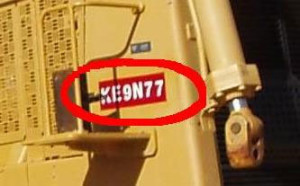
Not sure what all this means? Read on for a summary of the California Air Resources Board (CARB) mobile off-road diesel equipment regulations.
Filter Requirements
Deadlines for bringing off-road mobile diesel equipment into compliance varies by fleet size.
Large fleets (those over 5,000 HP) are the first to be affected. These fleets must begin to meet the Best Available Control Technology (BACT) requirements by January 1, 2014. To calculate your fleet average and determine fleet size, you can use CARB’s online fleet average calculator and reporting tool.
BACT requirements can be met in several different ways, so you’ll want to educate yourself and choose the best option for your fleet. Note some diesel equipment is exempt from BACT requirements and that there are specific regulations that apply to micro-fleets (<500 HP), limited use areas, and special diesel equipment, all of which will be touched on at the end of this post.
BACT Compliance Options
Owners have several options to bring their fleets into compliance:
- Re-powering Tier 0 or Tier 1 off-road engines with a Tier 2 or newer off-road engine, or a cleaner on-road engine
- Installing diesel particulate filters (DPFs) on equipment
- Replacing conventional equipment with electric, hybrid, or alternative fuel equipment
- Designate low-use equipment to operate under 200 hours annually
- Retire older equipment, thus reducing fleet size
Exemptions to BACT Requirements
- Equipment awaiting sale with no intention of operating it
- Equipment used less than 200 hours per year
- Equipment use solely for emergency operations or for snow-removal
- Equipment used for agricultural purposes for over half the annual operating hours
- Large fleets that have completed the equipment turnover or retrofits necessary to comply with the original 2010 requirements
- Equipment used solely on San Nicolas or San Clemente Islands
- Equipment used by the Job Corps apprenticeship training program
Considerations for Specific Mobile Off-road Diesel Fleets and Special Equipment
As mentioned earlier, not all mobile off-road diesel equipment falls into the standard classes of regulation. Take a look at the areas below to see if your diesel equipment fits into one or more of these categories.
Micro-Fleets
Fleets with total of 500 HP or less can choose to maintain a specified percentage of their fleet HP at a Tier 2 or higher level, gradually reaching 100% of their fleet at Tier 2 or higher levels. The first year of compliance for micro-fleets is 25% at tier 2 or higher by 2019.
Fleets in Designated Counties
There are two different rulings for fleets in certain counties:
Fleets in which all of the equipment in the fleet operate exclusively within the following counties are designated as a “small” fleet regardless of their total horsepower: Alpine, Colusa, Del Norte, Glenn, Humboldt, Lake, Lassen, Mendocino, Modoc, Monterey, Plumas, San Benito, San Luis Obispo, Santa Barbara, Santa Cruz, Shasta, Sierra, Siskiyou, Trinity, Tehama, and Yuba.
Fleets owned by local municipalities in the following counties are also designated as “small” fleets regardless of total horsepower: Alpine, Amador, Calaveras, Colusa, Del Norte, Glenn, Inyo, Lake, Lassen, Mariposa, Mendocino, Modec, Mono, Nevada, Plumas, San Benito, Sierra, Siskiyou, Sutter, Tehama, Trinity, Tuolumne, and Yuba.
Special Equipment
There are several other regulations for special equipment such as those with more than one engine, cranes, water-well drilling equipment, etc. To find out more about these special equipment regulations, check out the resources listed next.
More Questions?
For questions about the Special Equipment types or any other questions about the Mobile Off-Road Diesel Equipment regulations, you can call the folks at the Air Resources Board (866 6-DIESEL or 866-634-3735). Another great source for compliance information is Matt Verdin at Emission Retrofit Group (916-468-9046), who I want to thank again for presenting a great informative mini-seminar on diesel regulations for our ASA NorCal Chapter.
Jack Young, ASA, CPA
Diesel Equipment Valuations in California
NorCal Valuation Inc.
